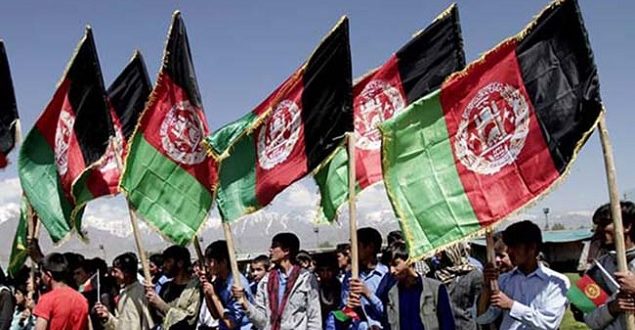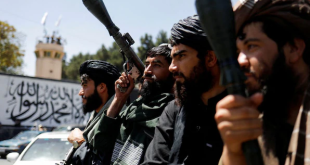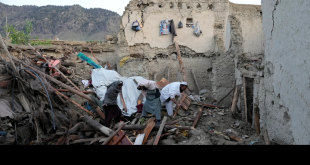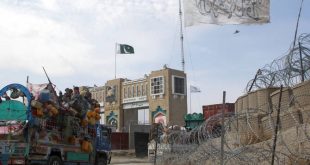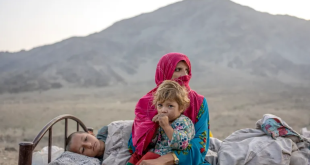By Prateek Joshi and Jalal Shams
President Ashraf Ghani’s recent electoral victory has once again put him at the helm of one of the most challenging politico-economic transitions any nation-state faces in the present times. In his first term, foreign Policy became a key focus area, where Kabul’s efforts were directed at roping in investments and pitching Afghanistan as an indispensable node in myriad regional connectivity projects floated by China, India and Eurasian states. Afghanistan’s participation in initiatives like the Chinese Belt and Road Initiative (BRI), Chabahar project and the Lapis Lazuli corridor demonstrated President Ghani’s efforts to integrate the nation with the global markets. The phase also witnessed pressures on the domestic front, which were assiduously managed to ensure a smooth execution of the government’s foreign policy vision.
The gravity of international challenges to the domestic politics was evident in the repeated postponement of the elections, a tight ropewalk which the Ghani regime successfully carried out in the preceding months in face of opposition from the Taliban. Also, the extent of domestic challenges to any international initiative can be gauged from the political opposition president Ghani faced in roping in foreign investment or transit project as any initiative would be seen through ethnic or local political calculations. A glaring example of these machinations is the Asian Development Bank approved TUTAP power project, a proposed power line running connecting Turkmenistan and Pakistan via Afghanistan. The government faced protests in 2016 as the proposed route of the power transmission line was said to be discretionary. In an unfortunate turn of events, a protest gathering was attacked in the same year, killing almost 80 people belonging to the Hazara ethnic group. In crux, the Ghani administration not only faced challenges where the domestic political got intertwined with the government’s international ventures, but they further ended up being hijacked by non-state actors as witnessed in the above-mentioned incident. Working towards a regional vision, President Ghani had been equally engaged in taking the Afghan political establishment towards a consensus as far as critical issues were concerned.
Despite the centrifugal forces operating within the National Unity Government (NUG), President Ghani charted out a robust and ambitious program based on Afghanistan’s location in the heart of Asia. Kabul has availed the opportunity to embrace several regional projects, ranging from the Chinese Belt and Road Initiative to the INSTC corridor spearheaded by India and Russia. The revival of Kabul-Urumqi flight in 2016 and the slow but steady functioning of China-Afghanistan freight train only substantiate Kabul’s commitments, besides making China the largest investor in Afghanistan. Similarly, the Afghanistan-India trade breached the $1 billion mark in 2018, marking the Ghani administration’s success in engaging the two regional powers to the best of Afghanistan’s interests.
For the Afghan regime, any regional vision has to be framed in the light of the nation’s landlocked geography weighed against its centrality to South and Central Asia. Within this context, the core of his vision was an economic program to integrate Afghanistan as a corridor of trade and cooperation connecting South, Central and west Asia and simultaneously securing alternative routes to access the wider transit and trading networks. As Afghanistan looks to integrate itself in the global economic chain, it is worth noticing how transit routes to Iran, Central Asia, China and even Europe figured prominently in President Ghani’s vision. Ghani’s pragmatism on the foreign policy front is visible from his refusal to accept Afghanistan as a landlocked state and its historic dependence on the Karachi port for trade. Addressing the Loya Jirga earlier this year, he stated that “we want Afghanistan to be the connecting point for transferring of the energy of the Central Asia to South Asia and this is something that only Afghanistan can do for Pakistan”, indicating Afghanistan’s potential in transforming the Af-Pak relationship into that of mutual interdependency.
In another occasion, President Ghani, on his visit to China described the foreign policy of his administration as “as a bundle of relations, the thickness or thinness of which depends on mutual trust and respect for our sovereign right to make choices that serve the interests of our people, the region and the world”. The larger message conveyed through this statement was Kabul’s confidence as the sole foreign policy driver in its economic choices, even though it acknowledges American assistance in the defense and security matters (even in the latter aspect the government has grown assertive in the last few years).
To conclude, the foreign policy needs a strong impetus in key affairs. Firstly, as Afghanistan focuses more on external trade, a nationally inclusive framework needs be developed where key export sectors are identified with emphasis on increasing the value added of the primary exports. The ongoing projects that seek to develop Special Economic Zones, resource mining and industrial have well laid rules and regulations but their slow pace needs to be looked into to infuse greater investor confidence.
Despite these successes, the human capital constraint remains a persistent concern which has prevented the foreign policy establishment from realizing its full potential. The other priority for the new government should be an institutional overhaul of the diplomatic establishment, which was affected by vested interests working at cross-purposes. Specifically, the influence of warlord-driven interests need to be curtailed from the foreign policy making and efforts should be made to make it professionally driven. Greater emphasis on inducting academicians and technocrats would add more vigour to Afghan foreign policy. Every year, Afghanistan gets growing number of young graduates from world’s leading universities. It is incumbent on the new administration to overhaul the foreign policy establishment of political cronyism and create a competent, loyal and patriotic diplomatic corps that looks into the sensitive aspects of policymaking. Concomitantly, the nascent think tank ecosystem in Afghanistan must be roped in to flesh out foreign policy issues with greater scrutiny and critical inputs, thereby enabling the foreign office to engage with the widest possible spectrum of input.

Prateek Joshi is a PhD candidate at the University of Oxford. His research looks into the historical evolution of Indian foreign policy. His areas of interest include domestic politics in Pakistan and Af-Pak politics. Previously he worked with IDSA, government funded autonomous think tank in India.

Jalal Shams is the current Advisor to the Afghanistan Social Democratic Party (ASDP) on international affairs and media relations. As a mid-career professional, Shams is currently working for the Afghanistan Airfields Economic Development Commission (AAEDC) at the Office of the President of Afghanistan, Presidential Palace in Kabul.
 Afghanistan Times
Afghanistan Times
